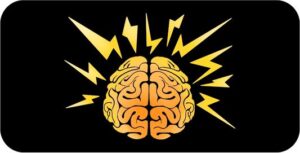Having concerns for your health lately? Tired of playing hopscotch with popular diets? The motivational and inspiring stories, before and after pictures, getting you nowhere in your fat loss efforts?
Many people act on first hand information. The initial excitement and haste clouds our thinking. Such information is designed as a marketing scheme good enough to get you started but fails in the long run.
Did the list raise your eyebrows or induce weird facial tics, don’t be surprised. Let’s point the magnifying glasses on the fine prints.
Dieting
Dieting is the first band wagon everyone hops on to, in their fat loss journey. Dieting is excessively marketed, and synonymous with eating less carbohydrates and more protein. Popular diets are often restrictive in nature. They promote the notion of less calorie intake equals less weight gain.
The truth is, not all calories are equal. Cutting down calories is not a sustainable approach to losing weight. Moreover, pinning your hope on a narrow selection of food can lead to nutritional imbalance and deficiencies.
Where is the sense in grouping certain foods to target a particular organ? Good luck fixing heart blockages with tomatoes. Modern hustle has rendered time precious than ever. There is no time for health, let alone time to connect with your food. Eating has become a mindless act of slurp and gulp.
Maintaining healthy weight may remain a challenging affair unless we pay attention to the ingredients in our food.
A restrictive diet can keep you hungry and craving, putting your body into starvation mode. As a result digestion and metabolism suffers leading to chronic illness.
Your body needs at least 2000 good calories for daily maintenance. Stop negotiating calories with your body.
Juicing & Green tea
Juicing is a popular fad, one of the worst dieting methods for fat loss out there. This is true for any liquid diets.
Juice is all water with vitamins and minerals, void of any essential calories and fiber lost in the pulp. Go on a juicing diet and you are starving yourself with loads of vitamins destined to hit the drain. The risk of over consuming fruit sugar and excess vitamins is a concern.
Regardless of what goes in the blender, the body can’t sustain without calories from good carbs. Without carbs the body doesn’t register fullness cues and keeps you hungry and craving.

Think about the time you spend on cleaning up the mess after juicing. I suppose this time is better spent cooking a wholesome meal. Heard of one pot recipes?
Let me give a special call out to Green Tea since it’s extensively marketed as a magic bullet for weight loss. Thanks to the abundance of female celebrities endorsing green tea and sowing seeds of hope in the minds of young women. I wish green tea indeed could help in losing fat.
Drink green tea or infusion tea to form a good habit and not as a fix for fat loss.
Want to learn more about orange juice and juicing myths? read my post here.
Fasting
Fasting is an age-old concept integrated deep within religious beliefs. Many cultural societies have been practicing it. Some practice fasting as a means to purify the body and mind. Some culture see it as self discipline and to connect with the divine.
Ancient people did smart things without knowing the science behind it. Cut to the present of high bandwidth smartness, the situation is quite the opposite!
Fasting is not for all, it takes time and practice to adapt to a fasting routine. When done wrong, you may experience side effects like hunger, fatigue, headache, dizziness, constipation, bad breath, and dehydration.
Today fasting is being done for the wrong reason, fat loss. Remember fasting is for people with good metabolism. I suggest, fix your gut health first with nutrition before taking up fasting.
Protein
My ear rings when I hear “protein”. One of the abused words in the diet and fitness industry. Ask anyone about protein and they immediately start singing praise for protein and its goodness.
Protein builds muscles? the answer is a NO, if you are NOT physically active and breaking your muscle tissues. Eating protein alone does not promote fat loss.
For the majority, protein always means animal protein. I wouldn’t be wrong to assume there exist people, who are unaware of the significance of plant protein.

What happens when you eat protein everyday or consume too much protein?
1. Excess protein intake can put strain on the kidneys
2. Proteins, especially from animal sources, may lead to increased calcium excretion, potentially affecting bone health over time.
3. Protein foods with insufficient fiber and fluid intake, can lead to digestive issues such as constipation.
Animal protein takes more time to be completely digested, up to 72 hours.
The unhealthy practices followed by the meat industry for raising animals is a never ending debate. Also the use of antibiotics & growth hormones raises more concern.
Read my post on chicken here, that sheds some light on the industry practice and how it affects our health.
Exercise For Fat loss
Exercising to lose weight is an evergreen myth. I feel sorry for the people who recommend exercise for weight loss, perhaps it’s their job.
To all my friends who are overweight or obese, let me tell you this.
No, you can’t convert fat to muscles.
No, walking and running does not result in fat loss.
No, sweating is not a sign of burning fat.
Moreover, you should not be exercising because your bones and joints can’t handle the impact and shock. Joint pain, muscle strain, heat exhaustion and cardiac problems are some reasons to stay away from exercise.
You don’t want to risk injury. Period.
Experts might suggest you start with low impact or low intensity workouts. These exercises are often some form of cardio, like walking, swimming and biking. I can assure you, these exercises do not help. It’s hard to do. Exercise doesn’t produce results you expect and will leave you disappointed.
Supplements & Superfoods
Besides a million dollars, a pill for everything would be the most desirable wish.
The belief that vitamin supplements improve health is deep seated in our minds, thanks to advertising.
Unlike prescription medications that undergo rigorous research and trials, regulations for dietary supplements are less strict. Manufacturers are responsible for testing their own products. This is concerning because manufacturers are free to make misleading claims to market their products.

Most vitamin supplements are synthetic in nature. Overdosing and the side effects of supplements pose serious health concerns. The most popular Vitamin C is a water soluble vitamin. Meaning the body cannot store it. Excess vitamin C gets excreted in the urine. If you are gulping vitamin pills and wondering if they work at all, you know where it’s going.
Stay away from fat loss pills. Period.
Classifying food as superfood is a marketing gimmick. There is no official definition for the word. “Superfood” is used to market certain foods with higher concentration of vitamins and minerals. For example, Superfruit is the word used to market exotic foreign fruits. Likewise quinoa, chia seed, hemp seed are being promoted as Supergrains.
Such classification of food may lead to preference for these foods while ignoring the rest. This may lead to nutrition imbalance and deficiencies.
More on supplements and superfood can be found in my post here.
Diet Culture: calories, weight, shape and size.
Putting numbers on food and body is a sad trend that’s doing the rounds in fitness circles. I used to be one of them, always judging everything on my plate.
Counting calories is of no use since it’s not the amount of calories, but the quality of calorie that’s important for maintaining healthy weight.
Scrutinizing your meal plate leads to a poor relationship with food. You are more likely to avoid certain food altogether based on calorie content alone. Obsession with numbers is counter productive to your fat loss efforts.
Similarly, giving importance to shape and size can make you dissatisfied with your body. This may negatively impact your mental well-being. Some, naturally have a higher muscle density, meaning they are heavier compared to normal people with similar body shape and size.
Shape and size of a person is no indication of health nor a metric for wellness.
A body mass index(BMI) of 24.9 is normal, while 25 is overweight. Another term used here is borderline overweight, sure to give you some sleepless nights.
Support groups
Working in groups has one disadvantage, there is a possibility of competition, followed by jealousy and envy. You are more likely to compare yourself with someone in the group that’s not you.
Every person is unique, the genetic makeup, metabolism rate, stress level, sleeping pattern and environmental influences differ for each person. Therefore the rate at which one burns fat is different.
Seeing your friend lose weight faster can be de-motivating and may induce self doubt. You may start blaming yourself and get aggressive in your dieting approach to see results.
You are likely to follow the diet and methods of an individual who is losing weight fast in your group, which may be against your belief or lead to disappointment.
Use support groups for well-being, to connect socially and share emotions, not as motivation for your fat loss journey.
Health Apps & Fitness Devices For Fat Loss
The smart has risen, and so have people by outsourcing the thinking work to smart devices like fitness wearables and health apps. Not that everybody uses their thinking cap, it’s good to save brain function for future use.

Here are some problems that plagues fitness devices:
Calibration errors are common in fitness devices. Wearable trackers can have up to 20-30% error in step count. This could mean a significant gap in your reported activity, accuracy off the chart if you will.
Fitness devices are not medically approved devices. Meaning, it’s up to the manufacturer to set functions and tests they desire in these devices. It’s important, especially for those with pre-existing medical conditions, to stop relying on fitness wearables and treat them as fitness toys.
Also, constantly checking your vitals like heart beat can induce anxiety and stress, should the numbers spike significantly. For example, your spouse surprises you with a dish they tried for the first time and you have no option but to eat it.
Health Blogs on Fat Loss
Often health blogs provide diplomatic content related to fat loss and tries to please all (readers, people who make medicines and people who prescribe medicines). These health blogs offer generic one size fits all advice. You and I both know, how useful that is.
Same old stories, same old pictures of fresh produce and those toned bodies in the gym. Health benefits of tomatoes and the likes, 1000 benefits of vitamin X. Eat fruits. Drink water. Meditate. Do yoga, and sleep tight.
Sure they sound assuring at the same time boring. Our mind picks up bits of information here and there, and tries to put it together in a way to convince us that we are doing the right thing. “This burger is healthy, see that piece of lettuce?”
Still reading about health benefits of fruits and vegetables?
Moderation is key ? Really? That sounds like an excuse.
Time to grow up.
To wrap things up
We talked about how dieting and juicing can be restrictive in nature.
Such restrictions might force you to prefer a limited selection of food on the basis of lower calories while ignoring others. This may cause nutritional imbalance and vitamin deficiencies which jeopardizes your fat loss journey.
On the other hand, Ignore fasting and exercise until you lose significant weight. The risk of physical injury is not worth the effort.
Excess protein intake, particularly animal source, may stress the kidney. As is the case with vitamin overdose from supplements.
Physical appearance is not an indication of health, one can be thin on the outside but covered with abdominal fat on the inside. On the contrary Sumo wrestlers are healthy people!
Ignore the numbers and aim for a balanced meal. Food rich in wholesome ingredients significantly improves gut health. Reduce or avoid processed ingredients from your meal. Eat what you like to have a better relationship with food.
Fitness devices and apps may not be medically approved to monitor your vitals. Ignoring genetics and lifestyle parameters may lead to inaccuracies in the results.

Rather than learning about good food, pay attention to the bad food. It’s easier to learn about the bad ingredients in your food because they are just a handful. This approach requires a mindset change which can be challenging but not impossible.
Hang on to that thought.
Good health.
[…] The gut microbiome can produce hormones and other signaling molecules that influence appetite and food intake. For example, the gut microbiome produces the hormone ghrelin, which signals hunger, and the […]
[…] tea: When it comes to tea, the only color I have a problem with is green. Green tea overly promoted. I can assure you, it doesn’t burn your belly fat, your favorite celebrity is […]
Olá, acho que vi que você visitou meu site, por isso vim devolver o favor. Estou tentando encontrar coisas para melhorar meu site. Suponho que não há problema em usar algumas de suas ideias
hi there thank you, sure feel free to use my work. keep reading
Your blog is a constant source of inspiration for me. Your passion for your subject matter is palpable, and it’s clear that you pour your heart and soul into every post. Keep up the incredible work!
thanks for commenting
Tech to Force Great information shared.. really enjoyed reading this post thank you author for sharing this post .. appreciated
thank you very much for sharing
Somebody essentially help to make significantly articles Id state This is the first time I frequented your web page and up to now I surprised with the research you made to make this actual post incredible Fantastic job
thanks for your comments appreciate your kind words
FinTechZoomUs Nice post. I learn something totally new and challenging on websites
Thankyou for the comment
Newtoki Very well presented. Every quote was awesome and thanks for sharing the content. Keep sharing and keep motivating others.
Thanks for sharing
Blue Techker For the reason that the admin of this site is working, no uncertainty very quickly it will be renowned, due to its quality contents.
hentairead This was beautiful Admin. Thank you for your reflections.
Thank you for reading! have a nice day.